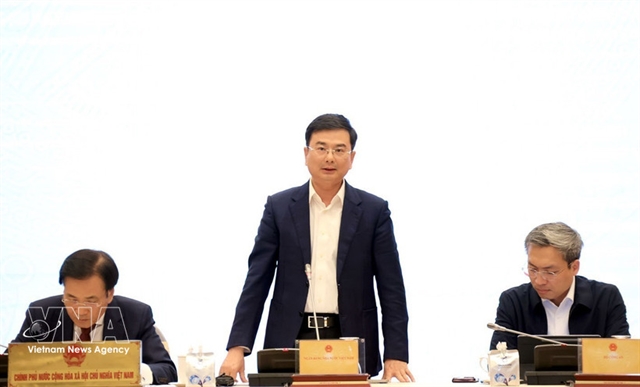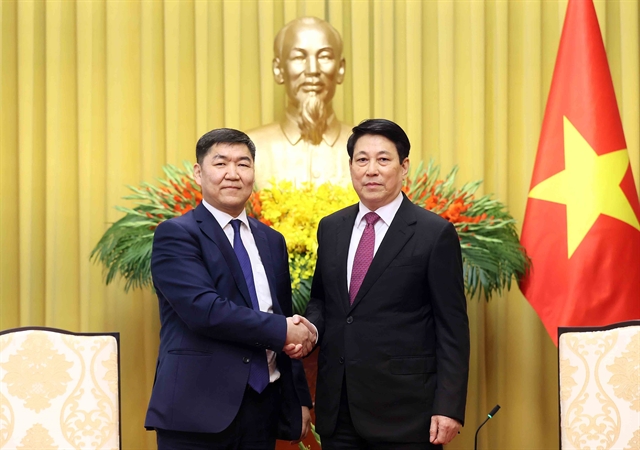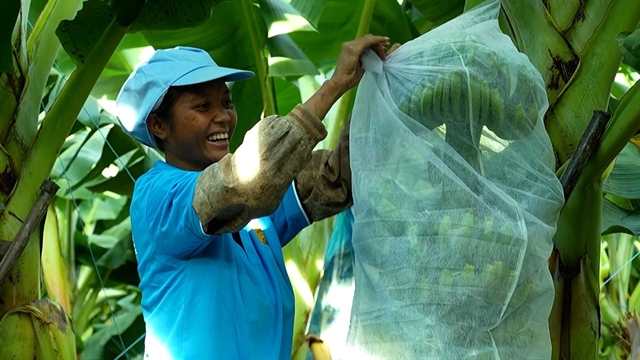 Society
Society
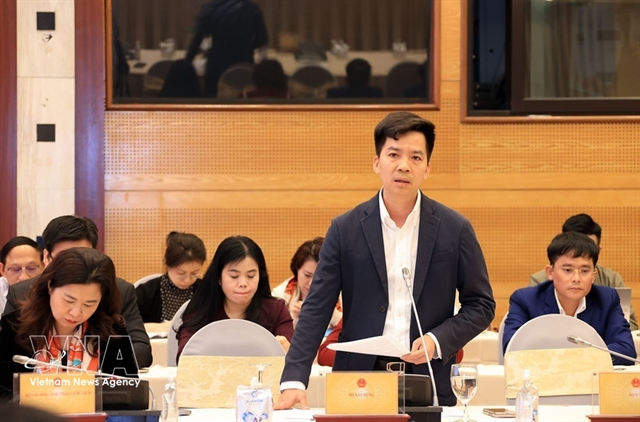
Nghi Thạch Commune Women’s Union has been giving the cards out to poor women since the beginning of last year.
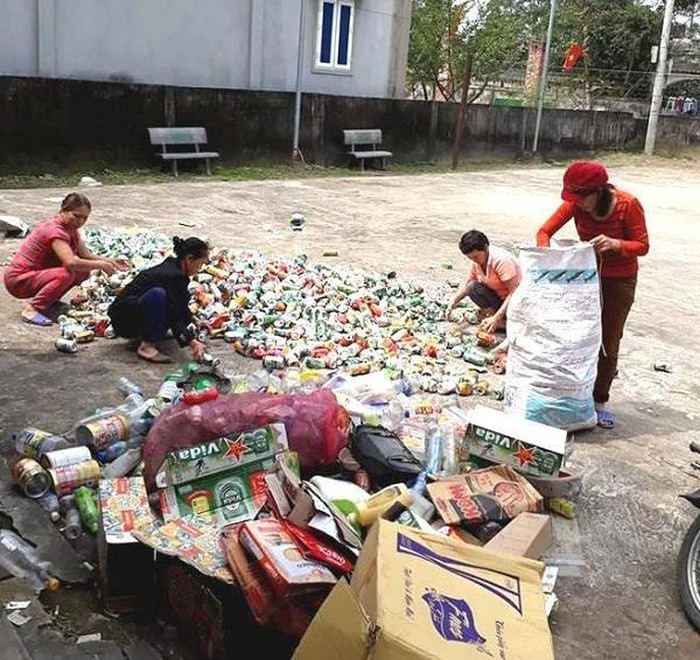 |
| Members of the Nghi Thạch Commune Women’s Union join the programme collecting waste paper and cans to raise funds for poor women. — Photo Courtesy of the Nghi Thạch Commune Women’s Union |
Thu Trang
NGHỆ AN — Hoàng Thị Thảo’s life changed when she received a health insurance card from the Nghi Thạch Commune Women’s Union.
For many people, a health insurance card is nothing special, but for a poor woman like Thảo, it’s worth its weight in gold.
The 42-year-old’s husband died of a disease a long time ago, leaving her to raise their four children alone in Nghi Thạch Commune, Nghi Lộc District, the central province of Nghệ An.
Some years ago, Thảo discovered that she suffered from cancer and the long and difficult treatment ended up costing a lot of Thảo’s possessions.
“I had to gradually sell different things in my house to have money for the treatment,” said Thảo.
At the beginning of last year, Nghi Thạch Commune Women’s Union presented her with a health insurance card, which can pay for up to 80 per cent of treatment costs.
“The card is a meaningful present. I hope that the union will maintain the work so that more and more women like me will receive support in disease treatment,” she said.
Nguyễn Thị Vân, 75, another needy woman in the commune, has a similar story, being unable to afford a health insurance card.
She was hit by cholecystitis last year and needed surgery.
“I needed a great amount of money for the surgery, and I was very worried,” she said.
Vân’s worries were eased when in March last year, the Nghi Thạch Commune Women’s Union gave her a health insurance card.
Now Vân is in stable condition.
“Thanks to the health insurance card, the surgery was supported much by the health insurance fund. I’m grateful for the union’s work,” she said.
Initiative
Nghi Thạch Commune Women’s Union has been giving the cards out to poor women since the beginning of last year.
Hoàng Thị Tình, head of the union, said that at present, more than 150 households in the commune are poor, with many people suffering from dangerous diseases which need long term treatment.
“To help the poor women, the union decided to collect waste paper and then sell it to have funds to buy health insurance card for the poor,” said Tình.
The model is part of the programme “three clean” launched by the provincial People’s Committee. "Three clean" means keeping a clean house, clean kitchen and clean alley to protect the environment.
The union started by telling households in the commune about separating waste paper, cans and bottles.
Every three months, residents in the commune bring their waste paper and cans to the commune cultural house. The waste is then sold, providing the funds to buy the health insurance cards.
So far more than 30 health insurance cards worth more than VNĐ20 million (US$870) in total have been presented to local poor women.
Long term plan
Đinh Thị Hạnh, chairwoman of Nghi Lộc District Women’s Union, said it was a good model of supporting poor people.
The district women’s union hopes to expand the model to other communes.
The union suggested other communes also support the poor in other ways, for instance, using money from selling waste to buy small trees, small breeding animals for the poor, or giving scholarships to disadvantaged students.
“We also encourage local poor women to use baskets while going to market instead of using nylon bags to keep the environment clean,” said Hạnh.
Nguyễn Đình Nhân, chairman of the Nghi Thạch Commune People’s Committee, said the action was small, but had big humanitarian meaning and also helped protect the environment.
“Women play an important role in agricultural produce and setting up rural new living style. Thanks to the programme, local women take part in protecting the environment from the smallest activity such as separating waste at its source and reusing waste,” he said.
“Each person’s effort will contribute to setting up more and more beautiful rural areas,” said Nhân. — VNS
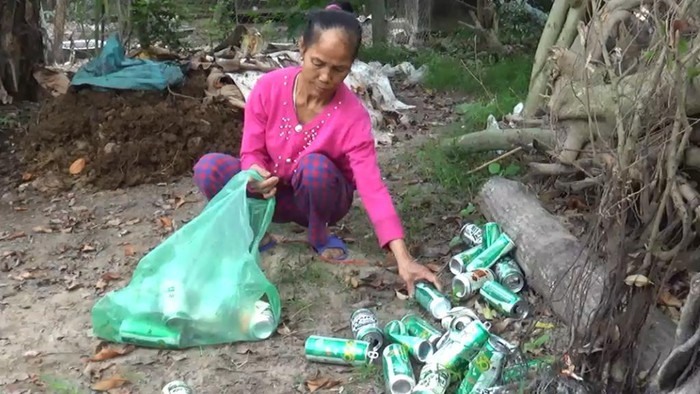 |
| A local woman collects empty cans in her village. — Photo Courtesy of the Nghi Thạch Commune Women’s Union |
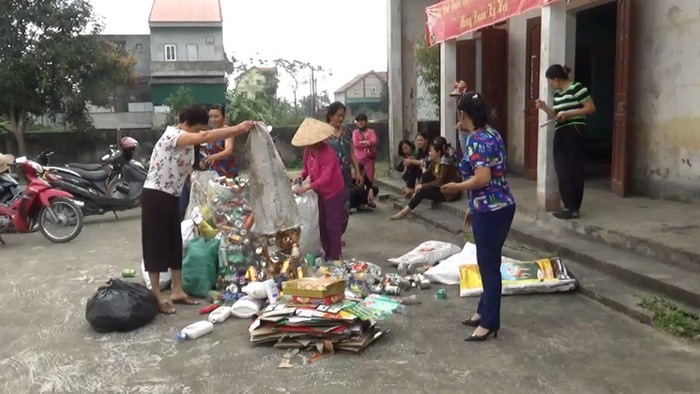 |
| Waste paper and cans are gathered at the village cultural house to be sold. — Photo Courtesy of the Nghi Thạch Commune Women’s Union |

